
to Hive being
welcome
What is Hive Being, and Why the Name?
You have likely heard talk of a hive mind, where one global mind finds more or less figurative expression in various local minds. Such talk is common enough in nature documentaries, especially ones concerning ants or bees, and in sci-fi programs. Take that notion, at least a loose version of it, and broaden its scope. That will be a decent first step in understanding the title I have chosen both for my Blog and for the first five-volume installment of my magnum opus Made For You and Me, a fragmentary collection of minimalist stanzas from 2016 to 2020.
In alignment with Spinoza (the 17th Century Rationalist to whom I devoted my doctoral studies), I view reality in its totality as a grand hive Being: all entities are but pulsating manifestations of the buckstopping fount of everything, an ultimate being we might call “God” or “Nature” (so long as, out of respect for the capital “G” and the capital “N,” we limit it neither to some anthropomorphic cloud father hurling lightning bolts nor to mere wilderness untouched by human smog). According to the hive-Being view (where reality is one lone superorganism, a monistic—and we might even say unividualist—conception I defend in both my creative and academic capacities), each non-foundational being (each being, that is, whose essence does not involve existence) is an utterly necessitated expression or eruption or exudation of this eternal source—each is, perhaps better put, a mode or manner of being, and so a focal point through which is disclosed, what classical theists sometimes call “being itself” (ipsum esse subsistens): the realness of the real, the being of whatever may be, the sheer activity of being, the very isness of whatever is. This Blog, which duplicates my Substack, throbs as but one among many literary unfurlings of this self-necessitated foundation, this supreme wellspring, of which we—like black holes and broken beliefs, like fractal ferns and flickering flames—are the inevitable stylings.
My Journey
I am an academic who found himself pressured into early retirement by the rising tides of cancel culture. The illiberal scourge of censoring, silencing, and shaming—although always with us throughout our evolution—reached a local peak around 2021. That was the turbulent year my creative pursuits, which the old left once encouraged as a healthy outlet for the stresses of a childhood steeped in poverty and illiteracy, drew the ire of the new safe-space left. A small cadre of self-proclaimed victims and their allies, several of whom continue to berate me years later under pseudonyms as see through as their sexual infatuation, sought to erase me and my heterodoxy. They found support from a wannabe-woke dean, covered in the grand inquisitor robes of our decadent modernity (full-body tattoos) and just itching to signal his commitment to protecting “vulnerable populations” from triggering material (even if just, as it was in my case, off-duty poems “unbecoming for someone calling himself a teacher”). Although I eventually won my due-process case with the help of The Foundation for Individual Rights and Expression, I slunk away from a college that turned its back on protecting freedom of expression and from an institution increasingly intolerant of intellectual diversity.
The wrecking ball to my too-comfy office in the windowless ivory tower came with a silver lining. From the ashes of my professional aspirations rose a phoenix of increased freedom to fulfill the literary calling I have pursued for decades. Reputation concerns never stopped me, even within academia’s sterile halls of conformity. Indeed, my unapologetic defiance, which has long baffled friends and family, no doubt chummed even safe waters—almost as if I were asking for it all along—until the cancel shiver grew too frenzied to hold back its blind thrashings. But now, now I piston the most forbidden territories of human thought with no longer even a twinge of conscience. The newfound freedom means extra time to hone my craft. When not assisting special-needs communities (a day job far more rewarding than freeway-flyer drudgeries), I pursue my literary mission with Dionysian fervor.
Call for Co-Conspirators
This space, my digital sanctuary, showcases the fruits of my mission. Think of my posts, even those linking to my publications, as works in progress. I want your input, unflinching brutality included. Each post begins with an invitation to action: “Let’s workshop this [draft about x, y, z].” Your contributions, whether through public comments or my contact page, help hammer scraps of ore into polished blades fit for magazine publication.
Your input is valuable, even if you are neither a writer nor a reader of literature—twin disciplines dying by the cyber nanosecond. Sometimes—even if at the risk of uttering banalities—an outsider’s fresh vantage can pierce the veils of convention to reveal what insiders miss. It often takes an outsider to make us even think to question our ingrained presuppositions and attitudes. I stand by the hygienic value of contagion. That is one reason I advocate so strongly for intellectual diversity and freedom of expression. And that is also one reason I was so harrowed by the anti-diversity swell of cancel culture in academia (an institution that should be the utmost caretaker of such values)—harrowed especially insofar as that swell masqueraded under the gaslighting guise of “diversity”).
You will witness the breathing evolution of my writings over time. To track these changes, I label each revision by round: “ROUND 2,” ROUND 3,” and so forth. Each piece undergoes continuous refinement based on your feedback and my own revisitations. Sometimes changes will mar the work. That is the risk of creative tinkering as a finite creature. I hope you will alert me to missteps. After many semesters of university writing workshops, one rule has impressed itself upon me: when someone senses a flaw, something almost always needs to change—even if, yes, the proposed solution misses the mark (which often it does). From a quick look into the archives, accessible here, you can see how much I have benefited from your feedback so far.
My Hope
Sharing drafts can be daunting. But showing you the ravaged and unperfumed real deal unfiltered by makeup (stuttering starts and falsities, awkward line breaks and clumsy word choices, grammatical errors and misspellings)—that not only makes my work more relatable, but helps me refine things through your input. I hope the unfiltered look at the raw process of fumbling, rather than just the polished product, also helps other writers develop their craft. Imperfect works often instruct more than perfect ones: whereas the perfect ones tend to have a grace by which they slip inside us without activating our scrutiny, the imperfect ones—especially the near perfect ones—show us glaringly what not to do.
People laugh at me, seeing—in my tilting at the windmills of literary excellence—a Don Quixote clunking around in Arthurian armor in a post-knight era. I am not naïve. I am well aware of the diminishing ability to read, let alone well: slowly and deeply, with gratitude. I am also aware that my style, which often nests subpoints within larger points, never waters down virtuosity for the sake of mass appeal. I watch readers stumble over my sentences, unable to unlock even just the music of the envelope let alone the semantic meat within, which—given my tendency to flashlight through the darker facets of human nature (the addicts, the miscreants, the abusers among us)—only adds an additional alienating layer of difficulty). Beholding these depressive scenes of even supportive family members getting bucked off my syntactic bronco makes me feel like a dinosaur who should get a hint and, if not succumb to the brain rot of skibidi-toilet speak, just hang himself already. Even though the decline in linguistic background and grammatical voltage makes my compositions seem quixotic in a world binging Netflix and TikTok, I persist—raging against the dying of the light—by some internal compulsion to celebrate the richness of language and thought.
My hope is that, despite social media’s unparalleled power to farm our attention, people never forget the unique power of writing. Beyond unveiling hypocrisy, teasing out complex implications, and detailing the commonalities between even the most alien phenomena, writing offers something we need today—trapped in agoraphobic cyber bubbles only thickened by the Lyme dangers of forests and the COVID dangers of cities—perhaps more than ever. Granting us rich access to the first-person perspectives of others (to how things feel to them), writing serves as one of humanity’s best tools for combating loneliness. It allows us to linger, broadly and deeply and at high resolution, within the inner lives of others in a way that other arts can only suggest.
What to Expect
My work spans a broad spectrum: from metaphysical discourses on free will and determinism and the ontology of holes to the ephemera of western culture (whether the childhood impacts of the hypersexual mono-image of black woman as squirting twerkers or Terrence Howard’s sham revolution of mathematics). Some tight and minimal, others free-flowing sprawls; some heady and abstract, others emotional and imagistic—my inkwell musings, which often blend scholarly rigor with a dark humor from both high and low culture, aim to capture the visceral intensity of our personal and social and ultimately existential predicaments.
By no means can I deny that drug abuse, sexual assault, and the tales of the broken and the damned loom large in the tag cloud of my work. My writing will never be a paradise of easy truths and comforting lies. It will challenge you, provoke you, and at times even repulse you. I offer no apologies for the monsters I unleash. They are as much a part of us, at long root scared rodent mammals scurrying in the shadows of dinosaurs, as our noblest aspirations.
But make no mistake. It is not all downer darkness. The archives are my receipts. You will find pieces exploring the pursuit of authenticity in a media-saturated world, the search for meaning in an indifferent cosmos, and the celebration of beauty in both the sublime and the profane. I locate much of my inspiration, in fact, in novelists like Dostoevsky and poets like Ted Kooser—writers unafraid to pursue moral agendas or risk Hallmark sentimentality in an age that often sneers at sincerity.
Be they satirical dissections of modern social dynamics or poignant poems about addiction or academic articles on moral responsibility, my goal is to provoke thought, evoke emotion, and foster meaningful dialogue. Fear has not and will not stop me from challenging humanity’s fundamental taboos (like bestiality and cannibalism) or self-reflecting into the dark chaos of the subconscious, even if that means exposing the Jungian shadows—the inner Goebbels—lurking within us all!
Expect posts each day, no day missed. Donations are welcome, but I impose no paywall: it feels wrong to charge for art, especially given our date with obliteration. Feel free to explore what amounts to, at the time of writing this, close to a thousand pieces of poetry and prose here. That should give you a sense of what awaits.
Join me—specula holstered—on this literary odyssey into the public and private nooks of the hive Being. Let us navigate the labyrinth of creation together, confronting our demons and even slaying our darlings if we must. Let us dance on the razor’s edge between the sublime and the profane in pursuit of an elusive literary perfection never to be confused—as it has been confused in our declining civilization—with the pursuit of popularity or likeability over truth.
tag cloud
- literature community
- American literature
- poetry
- literature
- poem
- literary
- creative writing
- writing
- poetry community
- Michael Istvan
- Istvan
- perception
- defiance
- suffering
- existential poetry
- dissociative
- existential
- healing
- human
- mortality
- power
- art
- God
- artist
- poet
- evolution
- love
- death
- darwin
- anxiety
- crack
- sex
- meditation
- adolescence
- psychoanalysis
- rape
- campus warrior
- Nietzsche
- substance abuse
- poverty
- Earth
- sensual
- resilience
- addiction
- hardship
- homeless
- addict
- rapist
- trauma
- therapy
- Life affirming
- hypersexual
- traumatic
- sexuality
- grooming
- prison
- anal
- parenthood
- dogs
- disease
- hyperarousal
- choking
- parenting
- anal sex
- true crime
- love letters
- identity
- traitor
- vines
- christianity
- treachery
- cunnilingus
- honey pot
- junkies
- religion
- faith
- power dynamic
- hoodlum
- murder
- worship
- woke
- thugs
- Biggie
- islam
- babies
- safe space
- hypocrisy
- muslims
- baby feet
- care
- pound town
- feet
- cops
- olympics
- dread
- homosexual
- blm
- Vaginal
- cancel culture
- horse
Posts

Quikrete
"Quikrete" is an exceptionally graphic and highly transgressive poem that uses extreme sexual and violent imagery to launch a scathing critique of perceived excesses in contemporary gay adoption culture, specifically targeting what it portrays as a self-serving, competitive, and ultimately perverse approach to parenthood. The poem functions as a polemical indictment of a specific pathology it attributes to a segment of "adoptive gays," hinting at concealed violence and irreversible harm.
The title, "Quikrete," is a brand name for fast-setting concrete mix. This subtly ominous title immediately foreshadows the poem's themes of permanent, perhaps irreversible, damage or a swift, brutal outcome, strongly hinting at body burial or the quick disposal of evidence, solidifying a crime. It suggests a destructive force that solidifies quickly, leaving no trace.
The poem immediately thrusts the reader into a scene of disturbing competition and violence: "The adoptive gays, one-upmanship / revving waiting-list edging / into insanity, tag team / a 'Finish Him!' fatality (only / no arcade-pixel respawn)." The phrase "one-upmanship / revving waiting-list edging / into insanity" characterizes the adoptive parents as engaged in a destructive, competitive quest, driven to extremes by the desire to outdo each other, turning the adoption process into a perverse game. The allusion to "Finish Him!" from the video game Mortal Kombat and "fatality (only / no arcade-pixel respawn)" brutally underscores the literal, irreversible harm inflicted, contrasting it with the simulated violence of a game.
The specific act of violence and its horrific consequence are then detailed: "colonic torsion neither dad— / spinner, fucker—meant / to shadow the kiddo creampie: / 'Fuck yes! Spin that lil’ prick!'" This is the poem's most shocking and explicit core. "Colonic torsion" describes a severe, life-threatening injury to the child. The poem attributes this to neither dad "mean[ing]" it, suggesting an unintended but direct consequence of their actions, a result perhaps of their perverse game. The terms "spinner, fucker" are presented as roles or personas taken by the dads, linking the violence directly to their sexual practices or aggressive behaviors. The phrase "kiddo creampie" is a grotesque and deeply disturbing sexualization of the child, implying the child is an object of their gratification. The concluding shouted line, "'Fuck yes! Spin that lil’ prick!'" is a horrifying climax. It implies a perverse encouragement of an act that leads to severe harm, revealing a profound lack of empathy, a sexualized view of the child, and a moral depravity that the poem attributes to this specific group.
Thematically, "Quikrete" critiques what it portrays as a hyper-sexualized, self-centered, and pathologically competitive strain within gay male culture, particularly as it intersects with parenthood. The poem argues that when parenthood becomes a vehicle for "one-upmanship" or "soiree flex" (as seen in related poems), driven by ego and a desire for novelty, it can lead to horrific and unintended consequences for the child, ultimately suggesting a possible, grim disposal or concealment implied by the title. The poem suggests a complete inversion of traditional parental care and responsibility, replacing it with a disturbing focus on sexual gratification and competitive performance, ultimately portraying these "adoptive gays" as monstrous in their self-absorption and disregard for the child's well-being. It is a highly aggressive and controversial condemnation of perceived ethical failures within a specific community.
transgressive poetry, social critique, gay culture, adoption, pedophilia, child abuse, violence, satire, moral depravity, sexualization, one-upmanship, identity politics, controversy, shock value, body burial, concealment.
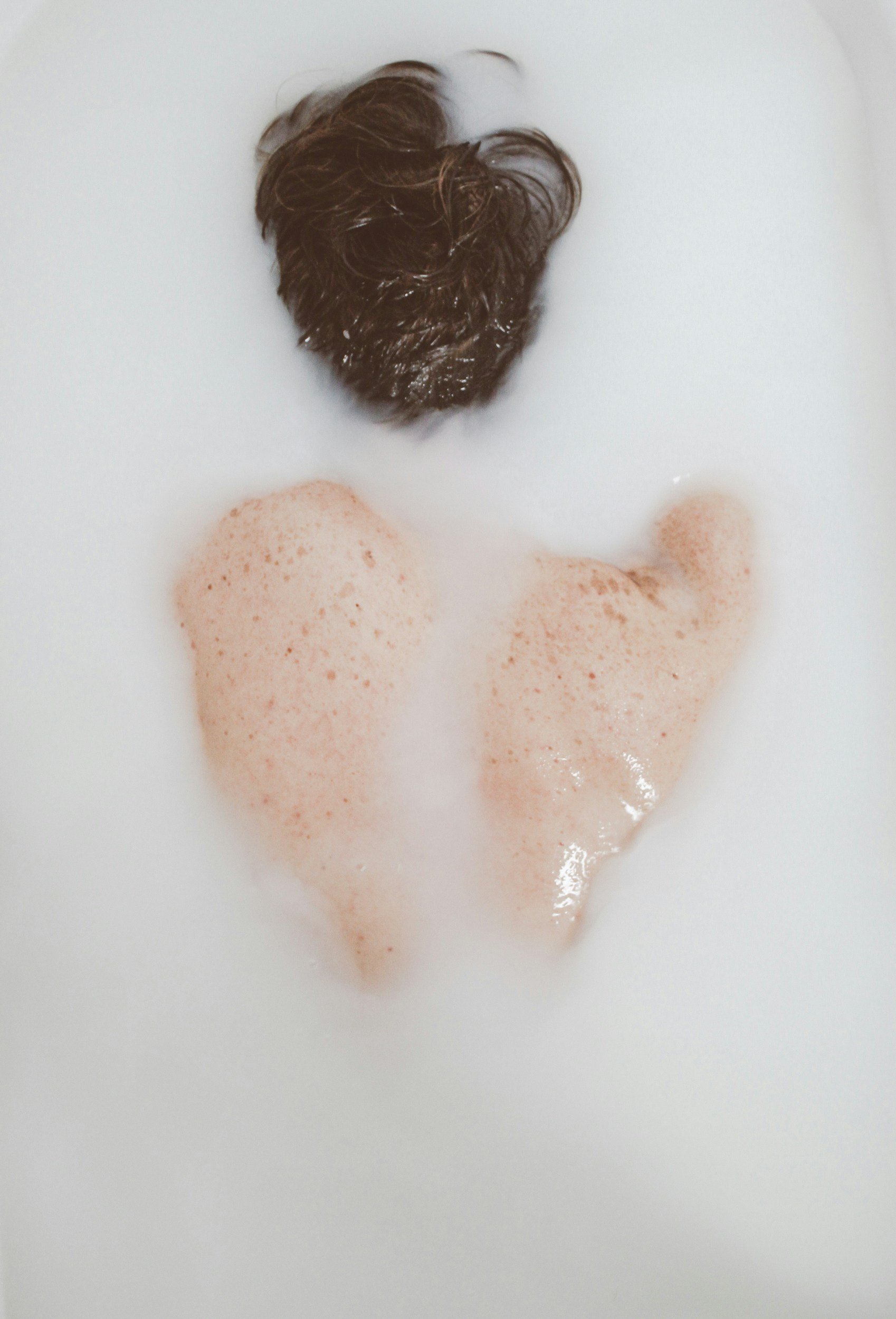
Inner Beauty
"Inner Beauty" is a poignant and sharply critical poem that delves into the subtle yet profound cruelty of perceived pity and the damaging insinuation of intellectual deficiency. The poem functions as a commentary on the subjective nature of beauty, social awkwardness, and the cutting impact of perceived condescension.
The title, "Inner Beauty," immediately establishes an ironic tension with the poem's content. While the phrase typically refers to the value of character over physical appearance, the poem proceeds to explore how physical perceived flaws can lead to judgments that undermine a person's inner worth and intellect.
The poem begins by detailing a specific social interaction: "Moist-brow refusal to stare / burned crueler than heckling ogles / (even spitball thwacks)." The "moist-brow refusal to stare" suggests a deliberate, perhaps uncomfortable, avoidance of direct eye contact, possibly accompanied by an expression of pity or discomfort. The poem immediately establishes that this seemingly benign act of avoidance is perceived as more painful than overt bullying like "heckling ogles" or "spitball thwacks." This highlights the insidious nature of subtle social cues, which can inflict deeper wounds than direct aggression. The use of "burned crueler" underscores the emotional devastation caused by this specific form of non-engagement.
The poem then articulates the reason for this heightened pain: "because the insinuation, / a brazen backhand to all those hours / hidden in library stacks, / was that—as if only retards / sprouted moles—she was too dense / to spot strained mercy." The "insinuation" is the core of the poem's critique. It is described as a "brazen backhand" to the subject's intellectual efforts, represented by "all those hours / hidden in library stacks." This directly links the social snub to an undermining of her intellect. The poem reveals the specific, cruel implication: that her perceived physical flaw ("moles" are implied as the source of the "refusal to stare") is linked to intellectual disability ("as if only retards / sprouted moles"). The most painful sting is the idea that "she was too dense / to spot strained mercy." This means she is not only judged for her appearance but also deemed too unintelligent to recognize the pity being extended to her. The poem thus exposes a profound level of social cruelty, where physical perceived imperfections lead to an assumption of intellectual inferiority, and even a show of "mercy" is delivered with a dismissive arrogance that further demeans the recipient.
social critique, inner beauty, perception, cruelty, pity, intellect, appearance, social dynamics, bullying, insinuation, emotional pain, self-worth, condescension, stigma, intellectualism, judgment.

Chihuahua
"Chihuahua" is a highly polemical and derogatory poem that expresses profound anxiety and contempt regarding perceived shifts in masculinity within contemporary Western society. The poem functions as a critique of evolving gender norms and identity politics, specifically targeting a perceived feminization and weakening of white men.
The title, "Chihuahua," immediately functions as a pejorative metaphor. Chihuahuas are often associated with smallness, perceived weakness, and being overly pampered or "cute," which directly aligns with the poem's critique of contemporary masculinity. This sets a tone of disdain and mockery.
The poem begins by listing what it perceives as the insidious influences contributing to this perceived decline: "Microplastics and soy, / the expanding creep of what / masculine traits count as toxic—". "Microplastics and soy" are often cited in certain online subcultures as environmental factors believed to contribute to feminization or reduced male vigor, even if scientifically unfounded. "The expanding creep of what / masculine traits count as toxic" directly attacks the re-evaluation of traditional masculine attributes, suggesting that this redefinition is an overreach that demonizes natural male characteristics.
The poem then accelerates its condemnation, projecting a bleak future: "soon there will be, especially / among self-cucking whites, / enough halfling girlie-men". The phrase "self-cucking whites" is a highly offensive and loaded term, implying a voluntary emasculation and submission, specifically within the white male demographic. "Halfling girlie-men" is a deeply demeaning and dehumanizing descriptor, painting a picture of men who are perceived as weak, effeminate, and diminished. The poem suggests this demographic is growing and is particularly prevalent among white men, linking it to self-inflicted ideological or cultural choices.
The final lines introduce a perverse twist of "respect": "deserving, no matter what / bred them, respect / only the inhumane would withhold." This is deeply ironic. The poem itself has just subjected these "halfling girlie-men" to intense ridicule and dehumanization. The concluding statement, framed as a conditional assertion about withholding respect, subtly flips the condemnation. It implies that these men, despite being anathema to the poem's vision of masculinity, are still human enough to warrant a basic level of respect, withholding which would be "inhumane." However, this is uttered within a context of profound disdain for their existence, creating a complex and unsettling satirical paradox. The poem's "respect" is offered with a cynical, almost disgusted, concession, underlining the poem's core argument that such men represent a degenerate form of masculinity.
masculinity, gender norms, identity politics, social critique, polemic, dehumanization, white male, feminization, satire, contemporary culture, toxicity, emasculation, pejorative, irony.
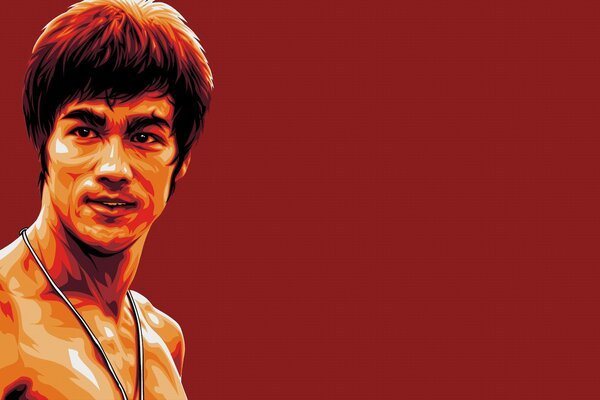
Pushups on Water
"Pushups on Water" is a satirical poem that critiques the exaggerated and often mythical reverence surrounding popular figures, particularly martial arts legends, in contemporary culture. The poem functions as a commentary on the amplification of prowess into absurdity and the potential for hagiography to distort reality over time.
The title, "Pushups on Water," immediately sets a tone of hyperbole and impossibility. It conjures an image of a feat that defies physical laws, signaling the poem's engagement with exaggerated abilities.
The poem proceeds by listing several increasingly outlandish claims attributed to martial arts icon Bruce Lee: "Bruce Lee could do / a layaway one-inch poke / where you die / a hundred steps later / or midair dash too fast / for film." These claims, though rooted in actual martial arts lore (like the one-inch punch), are presented in an exaggerated, almost folkloric manner. The phrase "layaway one-inch poke" adds a touch of absurd domesticity to the deadly force, while "midair dash too fast / for film" pushes the ability beyond verifiable reality, into the realm of pure myth. The parenthetical "or, still absurd, / even just tap out / Royce Gracie" introduces a contemporary martial arts figure, implicitly mocking the tendency to project Lee's abilities onto hypothetical modern-day victories, even against a legend of a different era and discipline. The poem establishes that "so many today swear" these impossible feats are true, highlighting a collective credulity.
The poem's central question, "what / immaculate conceptions / might we halo him with / after centuries?", delivers its core satirical punch. The phrase "immaculate conceptions" is a religious term, here used sacrilegiously to imply that over time, legendary figures are not just admired but deified, imbued with divine or supernatural qualities born of unquestioning belief. The poem suggests that if such absurd claims are already accepted after a relatively short period, the future holds even greater, more fantastical glorifications. It critiques the human tendency to mythologize, creating a hagiographic distance that replaces verifiable reality with fantastical narratives, driven by admiration that borders on uncritical reverence.
Satire, Bruce Lee, martial arts, legend, myth-making, hagiography, hyperbole, cultural critique, hero worship, exaggeration, popular culture, critical thinking, deification, contemporary poetry.
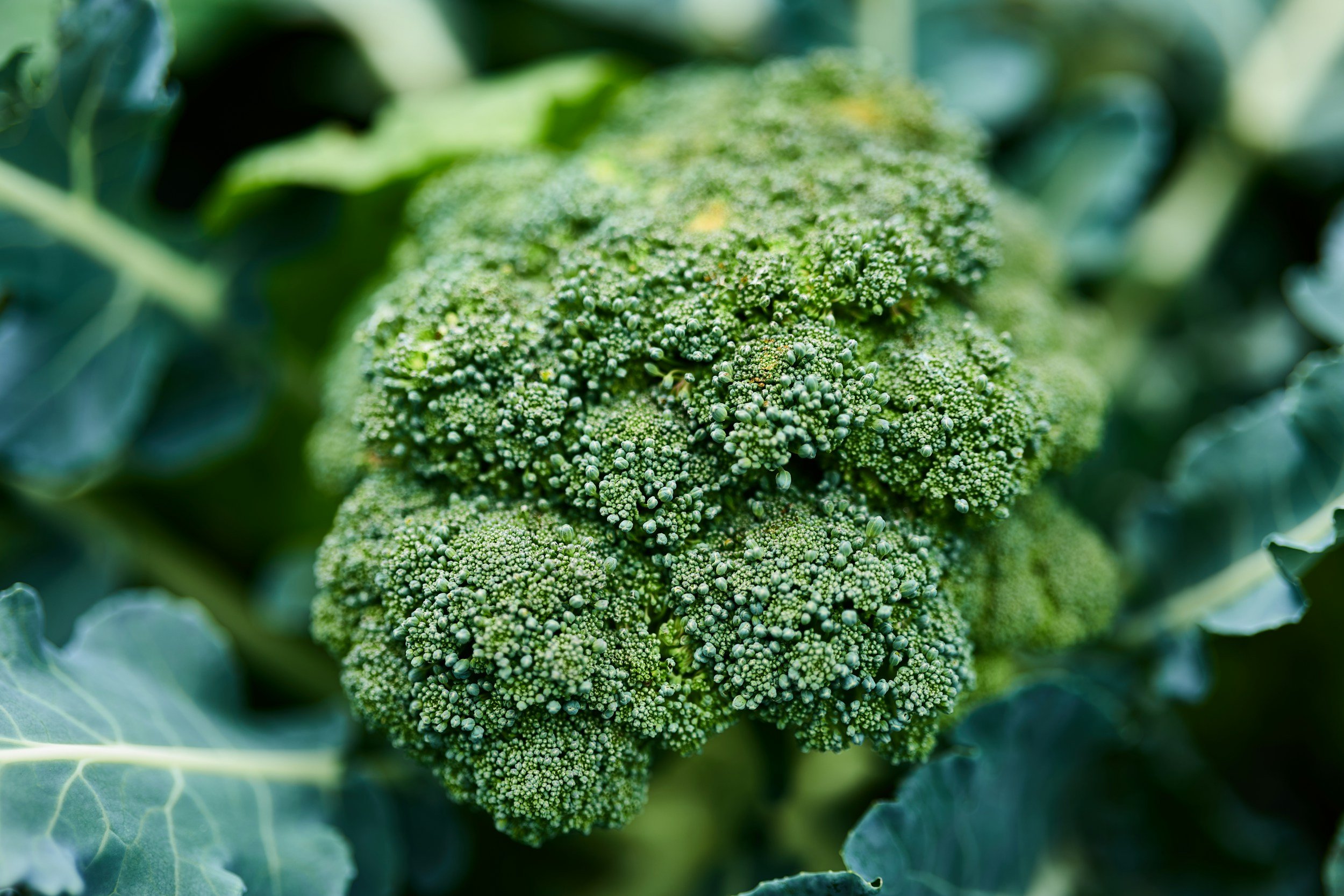
As if Goethe Once Ate Up a Black Queen’s Mic Time
"As if Goethe Once Ate Up a Black Queen's Mic Time" is a sharply satirical and polemical poem that critiques contemporary intellectual and cultural trends, particularly the perceived anti-intellectualism and identity-driven rejections of canonical Western literature. The poem argues that the dismissal of "great literature" as "toxic" serves as a convenient "excuse" for a broader cultural illiteracy.
The title itself is a highly provocative and hyperbolic metaphor. It juxtaposes the revered German literary figure Goethe with "Black Queen's Mic Time," a phrase that immediately evokes modern cultural spaces, particularly those focused on marginalized voices and issues of representation and equity. The implied scenario—Goethe "eating up" mic time—satirizes the idea of historical Western figures somehow monopolizing contemporary discourse or overshadowing other narratives, even in an anachronistic and absurd way. This sets a tone of direct confrontation with current cultural debates.
The poem proceeds to characterize contemporary engagement with "great literature" as a form of "hashtag illiteracy". The simile "Champing on great literature / in our hashtag illiteracy / makes us look like orangutans / with Rubik’s cubes" is a central, derisive image. It suggests that modern individuals, due to their superficial engagement with knowledge ("hashtag illiteracy"), are incapable of comprehending complex intellectual works ("great literature"), making their attempts appear as futile and clumsy as an orangutan trying to solve a Rubik's Cube. This paints a bleak picture of intellectual decline.
The poem then introduces a small, beleaguered group: "for the few still fighting to crack / its necromantic nutrition." This phrase imbues "great literature" with a mystical, almost forbidden power ("necromantic nutrition"), suggesting it holds profound, life-giving sustenance that is difficult to access but vital. The reference to "the few still fighting" highlights the perceived marginalization of those who value this intellectual pursuit. The final lines deliver the poem's core satirical argument: "what better TikTok excuse / than to learn the broccoli— / dead, white, male—is toxic?" Here, the poem directly targets the reasons for this abandonment. "TikTok excuse" immediately points to a superficial, trend-driven form of justification. The metaphor of "the broccoli— / dead, white, male—is toxic" is a powerful and cynical summation of how canonical Western works are often categorized and dismissed in contemporary discourse. "Broccoli" implies something inherently good or nourishing but rejected for being unpalatable. The labels "dead, white, male" are presented as the convenient, pre-packaged reasons for deeming this literature "toxic," thus providing an "excuse" for intellectual disengagement rather than genuine effort to "crack its necromantic nutrition." The poem thus skewers what it views as a performative and ideologically driven rejection of the literary canon.
satire, literary criticism, cultural critique, identity politics, anti-intellectualism, literary canon, Western literature, cultural literacy, hashtag culture, TikTok, academic discourse, intellectual decline, performative activism, contemporary poetry.

True Crime in a Clown World
"True Crime in a Clown World" is an intensely dark, satirical poem that offers a scathing critique of what it perceives as the distorted moral sensibilities and performative empathy prevalent in the "safe-space era," particularly within the true crime genre. The poem argues that contemporary cultural norms can lead to a scoliotic moral prioritization, where profound human suffering is desensitized or overlooked, while selectively chosen traumas or more palatable forms of victimhood receive undue emphasis.
The title, "True Crime in a Clown World," immediately sets a cynical and unsettling tone. "True Crime" points to the genre, while "Clown World" suggests a reality that is absurd, chaotic, and fundamentally disordered, implying a breakdown of genuine ethical engagement and a triumph of performative or inverted values. This context establishes the "safe-space era" as a landscape of moral paradox.
The poem unfolds with a brutal and graphic enumeration of extreme violence: "Vulva stabbed to meat-mallet mush; / neck oyster-shucked / to bone; spine knee-snapped / like a yard branch; eye sockets / goon hamstered (three / extra-cheese deliveries of edging)—". This series of visceral, almost surgical descriptions details horrific bodily harm with chilling detachment. The imagery of "meat-mallet mush," "oyster-shucked," and "knee-snapped like a yard branch" conveys a dehumanizing brutality. The phrase "eye sockets / goon hamstered (three / extra-cheese deliveries of edging)" is particularly disturbing, blending extreme violence with the mundane, almost absurd, language of commercial transactions and sexualized internet culture ("edging"). This juxtaposition heightens the sense of a world where horror is casually consumed, rendered into content.
The poem's central satirical thrust, which explicitly targets the "scoliotic moral sensibilities" of the "safe-space era," arrives with the final lines: "all this, yet the podcaster pauses / for her one trigger warning: / the victim’s turtle starved." This abrupt and jarring shift is the poem's core critique. After detailing an extreme, multi-faceted act of human violence with unsparing clarity, the single "trigger warning" is reserved for the death of a pet. This stark ironic displacement of empathy and concern critiques what the poem perceives as a performative, misguided, or desensitized approach to trauma in media. It suggests that in this "Clown World," while genuine violence is detailed without explicit warning, the "cherrypicked trauma" of a starving turtle (a more conventionally sympathetic or culturally sanctioned form of suffering) is meticulously flagged. The poem implicitly connects this selective empathy to the broader cultural demands for "honoring not only indigenous lands and trans bravery" (as alluded to in the summary's "safe-space era" context), suggesting that while these causes are acknowledged, the immediate, visceral horror of the crime itself is either overlooked or deemed less worthy of caution than a specific, less human-centric, form of victimhood. The poem thus argues that such narratives, despite their graphic content, ultimately fail to engage with the actual human tragedy in a morally consistent way, instead prioritizing superficial or ideologically aligned forms of empathy.
true crime, satire, moral sensibilities, safe space, trigger warning, empathy, violence, normalization, cultural critique, hypocrisy, irony, selective trauma, desensitization, contemporary media, performative activism, social commentary.

Summer Communion
"Summer Communion" is a deeply evocative poem that explores themes of elemental connection to nature, interspecies empathy, and echoes of historical experience through a series of vivid, often challenging similes. The poem functions as a meditation on shared sensation and a provocative attempt to draw parallels between contemporary acts of communion and historically resonant experiences, inviting readers to consider universal aspects of life and hardship.
The title, "Summer Communion," establishes a tone of unity and connection to nature's cycles. The poem then unfolds in three distinct stanzas, each presenting a seemingly simple "summer" activity that is then enriched by a profound and sometimes unsettling historical or biological comparison.
The first stanza, "Pick burrs and ticks off your pet / in hunched lullaby / like our groom-bent chimp moms," establishes an immediate connection to primal caregiving. The act of tending to a pet is framed with tenderness, elevated to a "hunched lullaby," suggesting an intimate, almost ritualistic bond. The simile "like our groom-bent chimp moms" universalizes this act of meticulous care, drawing a direct line to primate behavior and highlighting a shared, instinctual bond across species in nurturing.
The second stanza introduces a powerful historical parallel: "chill the watermelon in the creek swirl / for electrolyte blessings / like cotton-sun slaves." The image of cooling watermelon for refreshment is initially simple and pastoral, depicting it as a natural "electrolyte blessing." The comparison "like cotton-sun slaves" directly links this act of seeking relief from heat to the immense physical labor and suffering endured by enslaved people under the sun. This simile functions to evoke a sense of shared human experience with elemental hardship and the universal need for basic sustenance and respite.
Finally, the third stanza continues this pattern: "hug a big stone to moon-bounce / along the swim-hole floor / like fire-lung Indian kids." The act of playing in a swim-hole, "hugging a big stone to moon-bounce," suggests childlike joy and buoyancy in nature. This is then strikingly compared to "fire-lung Indian kids." This simile calls forth images of the historical suffering of Indigenous children, possibly alluding to diseases like tuberculosis (implied by "fire-lung") or the profound hardships of forced displacement and cultural loss. This comparison seeks to forge a deep, almost ancestral, resonance between a contemporary, innocent act and past struggles for survival and joy within nature's embrace.
Overall, "Summer Communion" is a poem that uses bold and challenging parallels to expand the scope of empathy and historical connection. It invites the reader to find common ground in human experience, even across vast historical, cultural, and species divides, prompting a reconsideration of shared vulnerabilities, elemental joys, and universal struggles for survival and comfort within the natural world.
empathy, historical resonance, universal experience, human-animal bond, nature connection, slavery, Indigenous history, shared suffering, solace, summer, communion, similes, elemental, human condition.
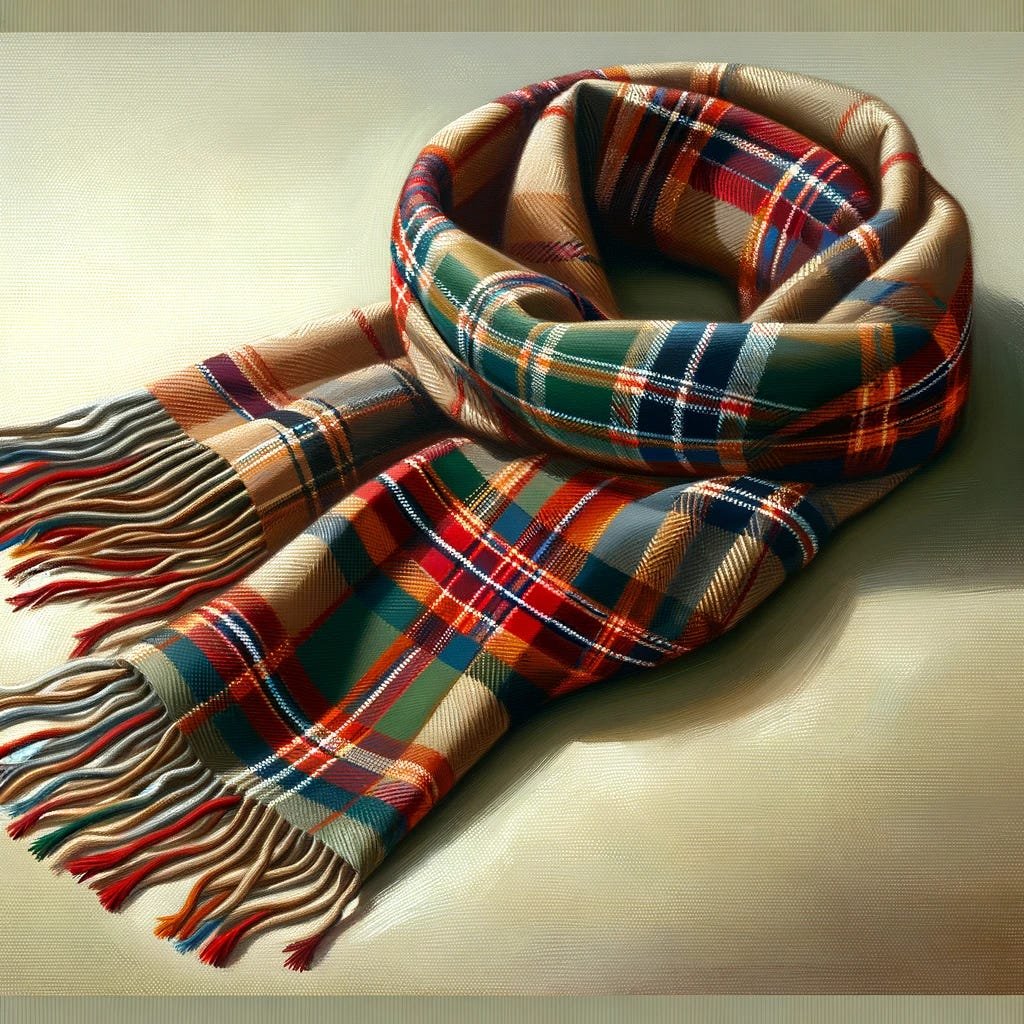
Tartan Scarves, the New Klan Hood
“Tartan Scarves, the New Klan Hood" is a highly polemical poem that critiques specific aspects of contemporary racial discourse and identity politics, particularly within academic and literary contexts. The poem argues that certain progressive stances, far from being beneficial, actually cause harm to the very groups they aim to protect, and even enable behaviors that undermine their own stated premises.
The title, "Tartan Scarves, the New Klan Hood," is a deliberately provocative and inflammatory metaphor. "Tartan scarves" can symbolize progressive or intellectual circles (perhaps invoking a bohemian or academic aesthetic), which the poem starkly equates with the "Klan Hood"—a potent symbol of white supremacy and racial oppression. This hyperbolic comparison immediately signals the poem's intent to invert conventional moral hierarchies and accuse certain progressive ideologies of functioning in a similarly oppressive manner, albeit through different means.
The poem establishes its central argument by focusing on the supposed harms of restricting critical engagement: "Nonblacks forbidden to judge / a black author’s characters or plot / even in college harms / blacks as it is." This directly targets the concept of "identity-based critique," where only members of a specific racial group are deemed authorized to critique art produced by that group. The poem asserts that this practice, even within an educational setting like "college," ultimately "harms blacks," suggesting it stifles intellectual rigor, honest feedback, and genuine growth.
The critique then sharpens, moving from literary judgment to social behavior: "yet white spoiling / breeds black brats so entitled / they stand likeliest to do / precisely what proves / the trembling-prey pretense / for that spoiling a lie: defying cops." Here, the poem introduces the concept of "white spoiling"—a perceived excessive indulgence or uncritical affirmation by white individuals. This "spoiling," the poem argues, "breeds black brats so entitled" that they are prone to actions (specifically "defying cops") which contradict the "trembling-prey pretense." This "pretense" refers to the idea that black individuals are perpetually vulnerable and oppressed, a notion that the poem suggests is undermined when those who benefit from "spoiling" engage in defiant behavior. The poem posits a cynical cause-and-effect: the very indulgence meant to affirm victimhood ultimately produces a behavior (defiance) that, in the poem's view, exposes the "pretense" of constant vulnerability as a lie, thus serving to justify the initial "spoiling." This presents a highly contentious argument, directly challenging notions of systemic racism and victimhood in favor of a focus on individual agency and the perceived negative consequences of certain progressive pedagogical or social approaches.
identity politics, critical race theory, social commentary, polemic, racial critique, white spoiling, entitlement, victimhood culture, police defiance, academic freedom, literary criticism, racial dynamics, controversy, social justice.
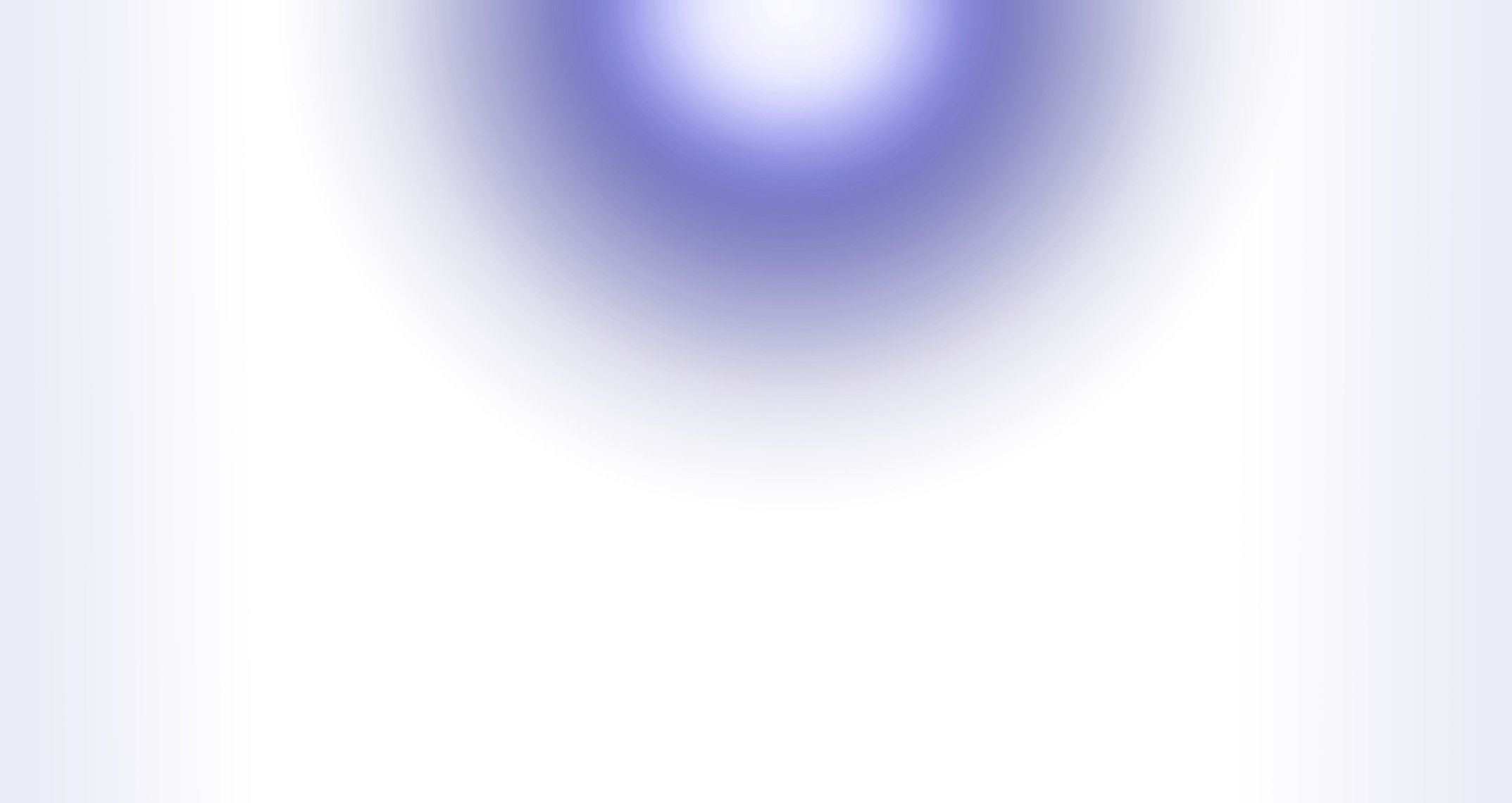
blog
FAQ

Visit my Substack: Hive Being
Visit my Substack: Hive Being

Don’t let anyone tell you that real life is lacking in poetic interest. This is exactly what the poet is for: he has the mind and the imagination to find something of interest in everyday things. Real life supplies the motifs, the points that need to be said—the actual heart of the matter; but it is the poet’s job to fashion it all into a beautiful, animated whole. You are familiar with Fürnstein, the so-called “nature poet”? He has written a poem about growing hops, and you couldn’t imagine anything nicer. I have now asked him to write some poems celebrating the work of skilled artisans, in particular weavers, and I am quite sure he will succeed; he has lived among such people from an early age, he knows the subject inside out, and will be in full command of his material. That is the advantage of small works: you need only choose subjects that you know and have at your command. With a longer poetic work, however, this is not possible. There is no way around it: all the different threads that tie the whole thing together, and are woven into the design, have to be shown in accurate detail. Young people only have a one-sided view of things, whereas a longer work requires a multiplicity of viewpoints—and that’s where they come unstuck.—Goethe (Conversations with Eckermann)
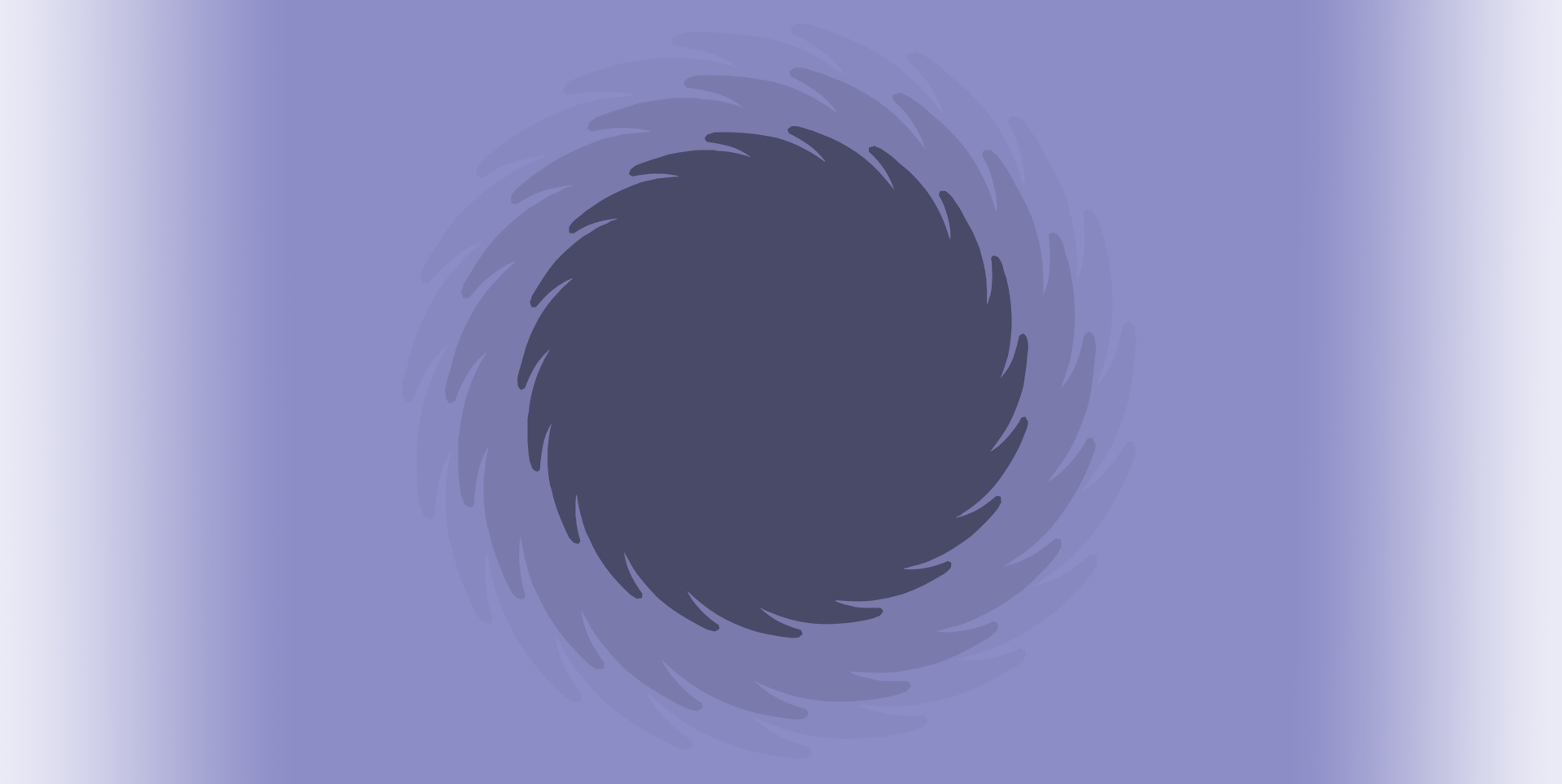
Featured Blog Posts
have appeared last night—
all those met along the way?
























